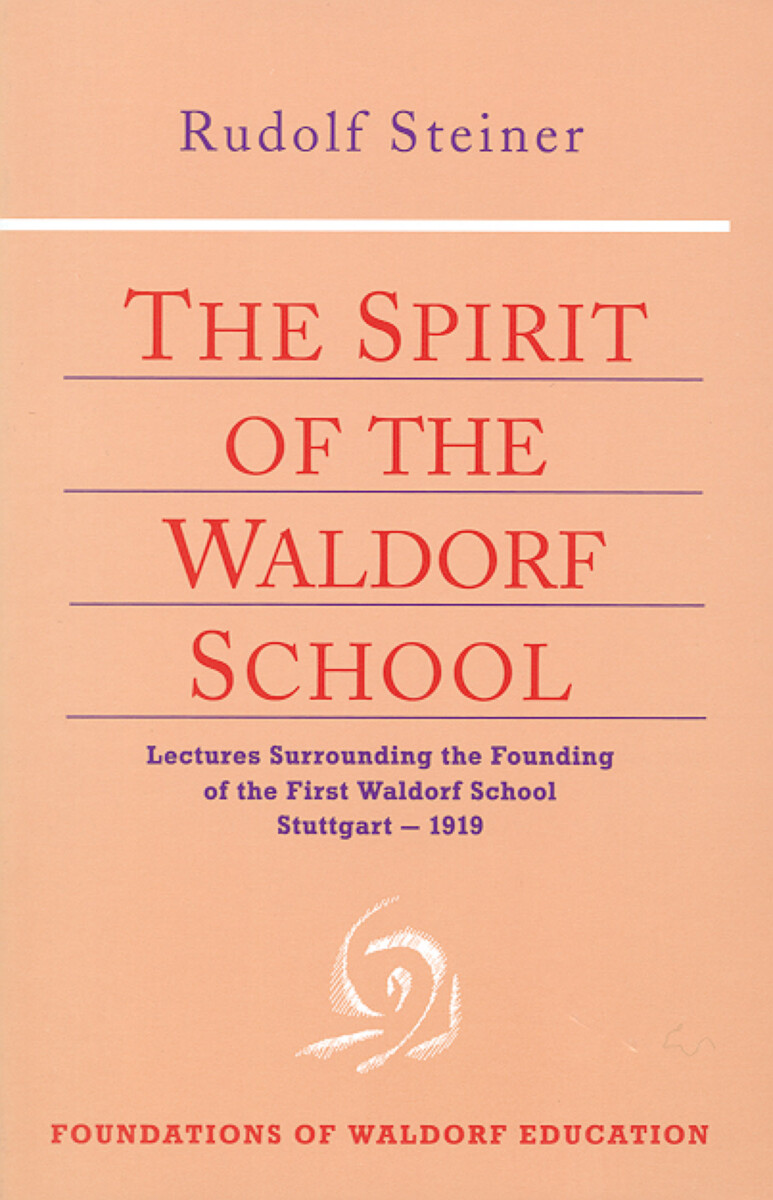The Spirit of the Waldorf School
Lectures Surrounding the Founding of the First Waldorf School, Stuttgart–1919 (CW 297)
- Publisher
SteinerBooks - Published
1st September 1995 - ISBN 9780880103947
- Language English
- Pages 208 pp.
6 lectures and an essay, 1919-1920 (CW 297)
World War I destroyed the structures, values, and self-confidence that created the seeming greatness of the nineteenth century. In its place stood ruins and the shards of a civilization. In response to this, Emil Molt—the director of the Waldorf-Astoria Cigarette Factory and a student of Rudolf Steiner—decided to establish a school to educate people who could create a new culture. Thus, the Waldorf school movement was begun. Rudolf Steiner agreed to act as the school’s consultant, and his insights guided the school in accomplishing this ambitious task.
The goal of this education was that, through living inner work guided by the insights of Rudolf Steiner, the teachers would develop in the children such power of thought, depth of feeling, and strength of will that they would emerge from their school years as full members of the human community, able to meet and transform the world.
These lectures occurred around the opening of the first Waldorf school. They serve as an excellent, inspiring introduction to Waldorf education as a whole. Here Steiner outlines—with freshness, immediacy, and excitement—the goals and intentions of a new form of education and speaks to parents of prospective students. He explains the school's guiding principles and describes how parents must participate, with understanding and interest, in the awakening of their children's creative forces so that a healthier society can come about.
German sources: Die Waldorfschule und ihr Geist (GA 297); "Die pädagogische Zielsetzung der Waldorfschule in Stuttgart," from Soziale Zukunft, Feb. 1920 (GA 24).
Contents:
Introduction by Robert Lathe and Nancy Whittaker
1. The Intent of the Waldorf School
2. The Spirit of the Waldorf School
3. A Lecture for Prospective Parents
4. Supersensible Knowledge and Social Pedagogical Life
5. The Social Pedagogical Significance of Spiritual Science
6. Spiritual Science and Pedagogy
“The Pedagogical Objective of the Waldorf School in Stuttgart” (an essay from the journal The Social Future)
Rudolf Steiner
Rudolf Steiner (b. Rudolf Joseph Lorenz Steiner, 1861–1925) was born in the small village of Kraljevec, Austro-Hungarian Empire (now in Croatia), where he grew up. As a young man, he lived in Weimar and Berlin, where he became a well-published scientific, literary, and philosophical scholar, known especially for his work with Goethe’s scientific writings. Steiner termed his spiritual philosophy anthroposophy, meaning “wisdom of the human being.” As an exceptionally developed seer, he based his work on direct knowledge and perception of spiritual dimensions. He initiated a modern, universal “spiritual science” that is accessible to anyone willing to exercise clear and unbiased thinking. From his spiritual investigations, Steiner provided suggestions for the renewal of numerous activities, including education (general and for special needs), agriculture, medicine, economics, architecture, science, philosophy, Christianity, and the arts. There are currently thousands of schools, clinics, farms, and initiatives in other fields that involve practical work based on the principles Steiner developed. His many published works feature his research into the spiritual nature of human beings, the evolution of the world and humanity, and methods for personal development. He wrote some thirty books and delivered more than six thousand lectures throughout much of Europe. In 1924, Steiner founded the General Anthroposophical Society, which today has branches around the world.


